“Language and marginalisation”: An interview with Willian Grint on The Comedy of Errors and inclusive theatre
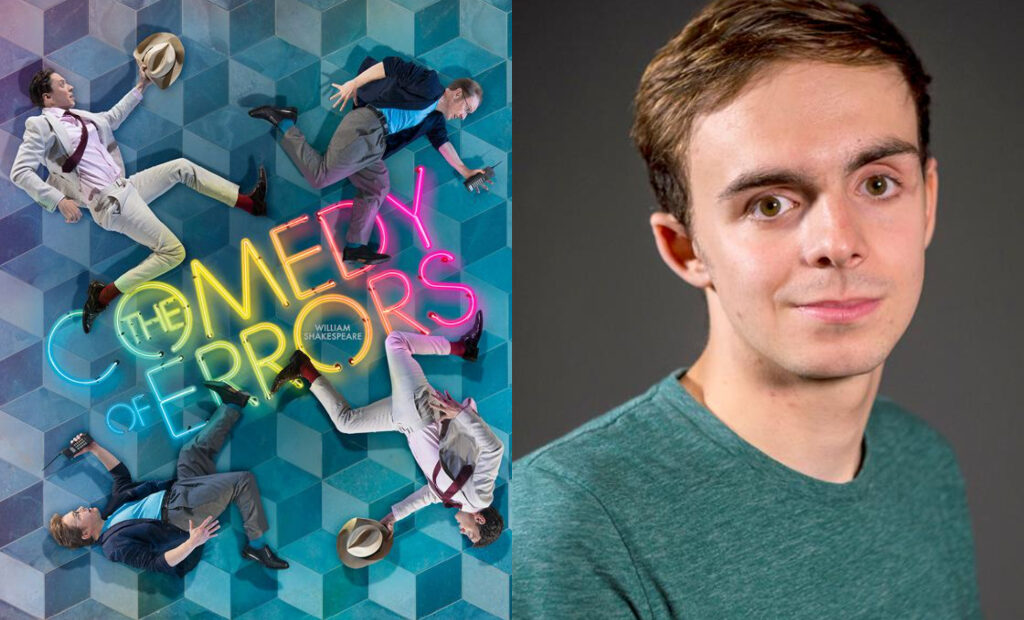
The Comedy of Errors opened to critical acclaim at the Garden Theatre last summer and has recently come back for a short national tour before settling at the Barbican in London for November and December, 2021. William Grint – previously involved in the broadcast of The Winter’s Tale on BBC Four (also with the Royal Shakespeare Company) and productions such as The Process at the Bunker Theatre in London and Imogen at Shakespeare’s Globe – plays the role of the Second Merchant, using British Sign Language. The artistic decision to also include a bodyguard and interpreter for the character creates a whole new dynamic in the play, while also opening up possibilities for other productions to follow suit and provide opportune roles to theatre actors.
Constantly advocating for more Deaf roles within the theatre industry, now is Grint’s chance to demonstrate how creative decisions in theatre can help accommodate, and generate more inclusive and diverse live performances. The Upcoming caught up with the actor during Christmas and New Year break to talk about his role in The Comedy of Errors, his experiences so far in theatre, and his hopes for the future of Deaf actors.
To start with, what has been your favourite production to be involved with so far in your career?
I have been in so many brilliant productions throughout my career, choosing one would be just impossible! Tommy: The Musical was a mind-blowing experience; leading the musical as a Deaf person was empowering! Sirens and The Process had brilliant scripts to work on. But if I had to choose one, it would be The Comedy of Errors, especially because of the type of role I was cast in; the Second Merchant was terrifyingly psychopathic, which was completely different from all of my roles in my career, and I really enjoyed playing a vicious sadist for laughs!
You’ve been on tour, and you’re currently playing the role at the Barbican. How was the tour, and how has your overall experience with the production been so far?
Leaving Stratford and the Garden Theatre was so emotional, but I was excited to go indoors to see how different the show would be, especially with a lot more lighting and different staging. It took me a few shows to get used to it! I enjoyed going to the different towns and experiencing different audiences. Canterbury was my favourite because it had a similar energy to Stratford and the audience seemed really connected to the production. And, as the tour went on, I knew I was getting closer and closer to home (London), which I was really looking forward to. I was happy to be home for Christmas and I enjoyed the pressure and excitement of performing on a big London stage.
What do you like most about working on this production? And what do you think director Phillip Breen has brought to Shakespeare’s work?
I loved being in a comedy and learning from Phil how to maximise the comic effect. This is the first comedy I have been involved in professionally and it was so much fun! Phil worked out what to do with my character and I think he was really successful in the way he combined Shakespeare’s words spoken by Dyfrig Morris, with BSL. The timing was really important, and I learnt so much from his direction. I also loved the way Phil incorporated Hedydd’s pregnancy into the play. It was such a clever idea and linked so well to the play’s themes.
The Comedy of Errors isn’t so far from reality these days, thinking about travel bans and the difficulty of the journey. Have there been other plays you’ve been involved in that have reflected the state of the world, even in the smallest of ways?
I was in The Process with BAZ productions just before I started with the RSC. It is a dystopian play about the way people can be controlled and tracked using government technology. As the story unravelled, it became clear that the app allowed the government to discriminate against certain groups, including Deaf people. It gave a powerful message about language and marginalisation. I think that, during the pandemic, there have been many debates about personal rights and freedoms, which link into these ideas. Another thing I noticed is that government announcements are never interpreted in England, which is a discriminatory decision taken by those in power.
Speaking of the pandemic and interpretation, what do you think this period has shown us about how theatre is delivered to audiences? Do you think we’ve found new ways to keep the stage alive and accessible even at home, or do you still prefer the in-person experience?
I was so happy to be able to take part in The Winter’s Tale, which was never performed in front of an audience and instead was filmed and shown on TV. I think it is valuable to show theatre in this way, when there are restrictions to visiting theatres. For some people, they can only ever see plays online or on TV.
But something happens when plays are performed live, in front of live audiences, especially when the run is fairly long. The play takes on a life of its own: it changes, it grows, it is a living thing and everyone working to make it happen is a kind of organ in a body! This is the thing I love about being in a play that runs in front of a different audience every night. And I think the audience could feel that. It’s such an important part of the live experience.
You once said: “I want to see Deaf actors in a range of roles, where their Deafness doesn’t define them.” How much of that do you think falls to the productions (in terms of providing these roles) or to the actors themselves?
Well, I do think it’s good if a director has developed an idea about using a Deaf actor. This idea might be worked on in research and development, with a Deaf actor and possibly a BSL consultant – someone who can support a director who hasn’t worked with Deaf actors before. During rehearsals, it is important for the director to work collaboratively with the Deaf actor(s). I appreciate very much that Phil trusted me to play with my character to achieve the maximum impact. So, in answer to the question, it needs to be both!
Have you been involved in an all-Deaf cast production? Is there a big difference in the experience with a cast like that?
During my time with Deafinitely Youth Theatre as a teenager I worked with all-Deaf casts. It was easier in terms of understanding each other, in terms of language, and, often times, in terms of our life experiences and the challenges we have faced. It is very different being the only Deaf person involved!
Speaking of an all-Deaf cast production, are there any stories that haven’t been adapted yet into a BSL or silent format that you’d like to see, or maybe even be a part of?
I would love to be involved in an all-Deaf cast production! Any play would be translatable into BSL, and then there would need to be consideration about how to make it accessible for a hearing audience! This would then expose the challenges of watching a play with sub/sur titles – something that Deaf people have to do. If I had to choose, I’d love a Deaf Romeo and Juliet!
Theatre as an art is so expansive: there are a lot of ways to tell the story outside of verbal communication. What are some of your favourite theatrical expressions – from costumes, props, to even lighting and stage design? What do you feel are the best ways to convey stories in theatre?
In The Comedy of Errors I really loved my costume and wig as the Second Merchant. You put on the costume and the character arrives! Some of the props were so brilliant too, and created real comedy, like my knuckle dusters and the set of knives that came out a couple of times! When I was involved with ZooCo Theatre, they used projections and creative captions, which the cast engaged with. This technique is an exciting way to bring language to life, especially if some members of the cast are using BSL. I also really enjoy physical theatre – it’s a great way to enhance humour and drama on stage.
You’ve been acting since you were a teenager. Now you’re a bit older and with more experience under your belt, do you ever get nervous performing or does it all come naturally now? Are there still things you’ve yet to learn as an actor?
I get more nervous in rehearsals than in the show itself! I’m keen to give the best of myself and I work really hard to break down the barriers that exist in the rehearsal process because we use different languages. It is a challenge, but I really enjoy seeing the team grow in confidence when communicating with me. The adrenalin I feel once the production goes onto the stage for real takes over any nerves, and I feel fully confident, and I enjoy myself! This is only possible because the team (cast and crew) is totally mutually supportive and encouraging. I will never stop learning as an actor, but one thing I would love to do, specifically, is sword-fighting!
Mae Trumata
The Comedy of Errors was on at the Barbican from 16th November until 31st December 2021. For further information visit the Royal Shakespeare Company’s website here.
Read our review of The Comedy of Errors at the Barbican here.
Watch a trailer for the production here:


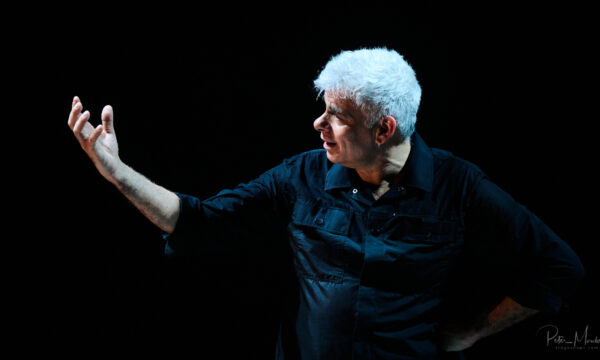
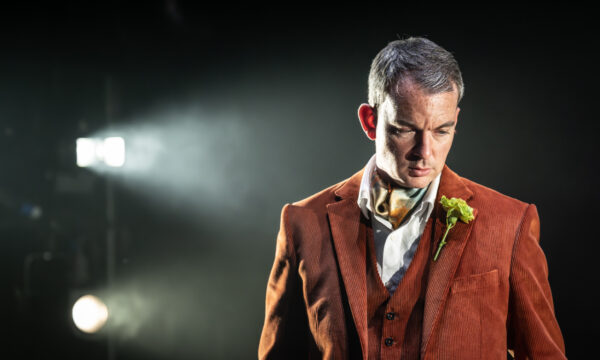
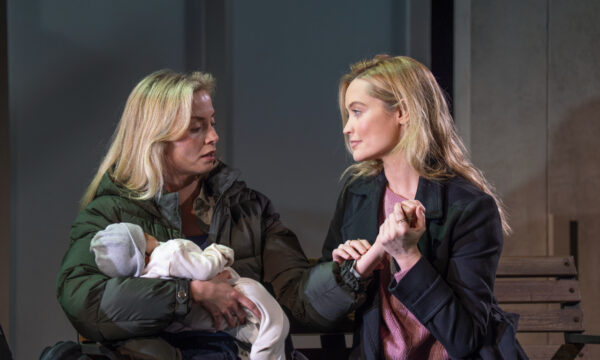
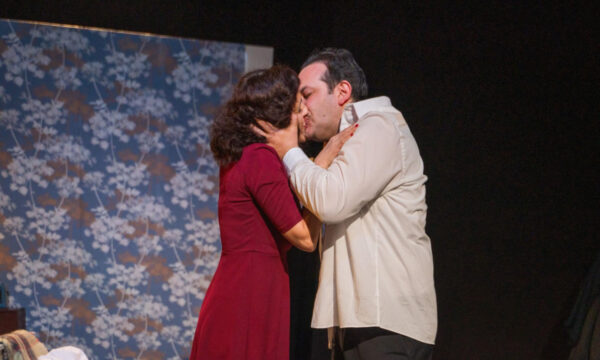
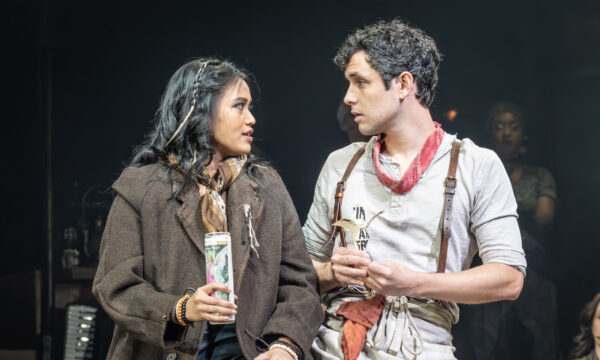
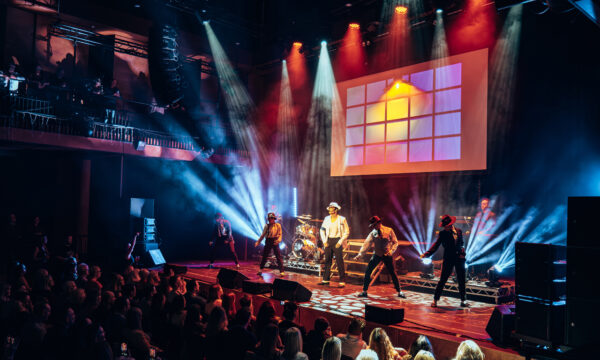
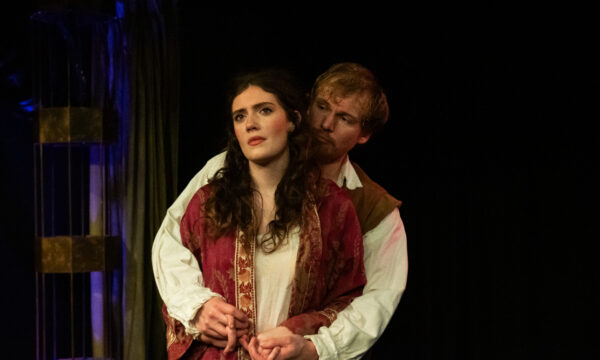
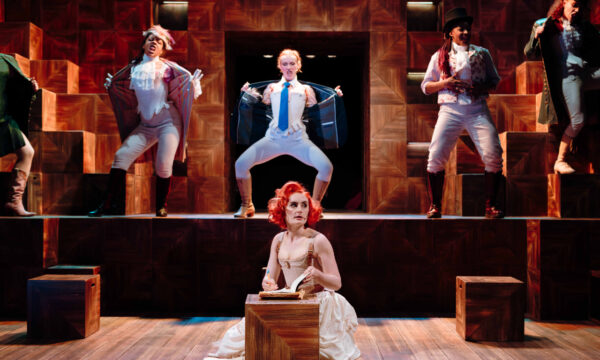
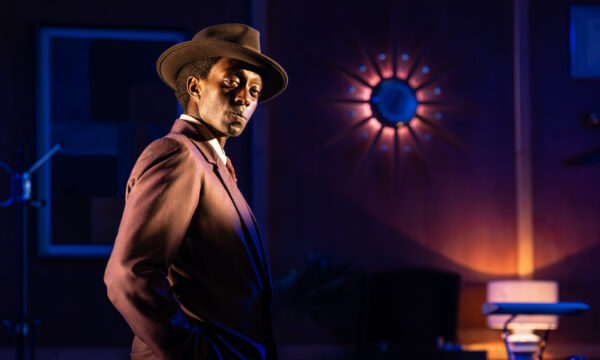










Facebook
Twitter
Instagram
YouTube
RSS